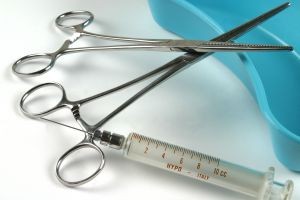Loveless v. Colvin, an appeal from the United States Court of Appeals for the Seventh Circuit, involved a claimant, who at 56 years of age had a lengthy work history. Claimant worked various jobs, including a delivery driver, warehouse employee, and supply manager for a plumbing company, and he owned a restaurant.
 In 2009, claimant began to feel significant pain in his right shoulder, and his doctor referred him to an orthopedic surgeon. Claimant was given steroids, physical therapy, and injections of joint lubricant medication, as well as anti-inflammatory medications, but nothing worked. At this point, the surgeon opted to perform arthroscopic surgery on claimant. This occurred in September of that same year.
In 2009, claimant began to feel significant pain in his right shoulder, and his doctor referred him to an orthopedic surgeon. Claimant was given steroids, physical therapy, and injections of joint lubricant medication, as well as anti-inflammatory medications, but nothing worked. At this point, the surgeon opted to perform arthroscopic surgery on claimant. This occurred in September of that same year.
During surgery, his doctor successfully removed a bone spur he believed was responsible for the pain, and follow-up images taken did not show any other bone spurs or other problems, so he was cleared to return to work in March 2010. He went back to his job at that time, which was working in the warehouse.
A few months later, claimant began to feel numbness in his arm, experienced lower back issues, and had a variety of other uncomfortable and painful medical conditions. His primary care doctor conducted a full examination. He could not determine why claimant was having these new symptoms, but a blood test showed a high glucose level. At this time, claimant kept working at the warehouse.
In December 2010, claimant was moving heavy objects at the warehouse and hurt his right shoulder again. This time, he damaged his rotator cuff and had additional deterioration the joint. This included the muscle tissue, tendons, bone, and cartilage in the shoulder joint. A couple of months later, surgeon repaired the torn rotator cuff, and claimant seemed to be doing fine a couple weeks post operation. He was healing and continued with physical therapy. By April 2011, he had almost all mobility, and his pain was under control.
However, everything soon went downhill, and the pain and numbness returned with additional problems, as well. Claimant filed for Social Security Disability Insurance (SSDI) benefits and asserted that he could not work anymore. In other words, he was claiming 100 percent disability.
Claimant first filed an application for Social Security disability benefits in writing, and that was denied. However, as our Boston disability attorneys have seen far too often, the majority of all initial applications are denied without regard to the merit of the claim. This is basically the United States Social Security Administration’s (SSA) way of keeping costs down by paying out less in claims. After an initial appeal and another denial, he was able to get a hearing before an Administrative Law Judge (ALJ).
The ALJ listened to testimony from claimant’s doctor, a so-called vocational expert (VE) and other witnesses. He determined that claimant could work in a light capacity and was therefore not disabled. Claimant appealed to the United States District Court, and that court affirmed ALJ’s denial of benefits. Claimant then appealed to the United States Court of Appeals for the Seventh Circuit, and that court too affirmed ALJ.
If you are seeking Social Security Disability Insurance benefits in Boston, call for a free and confidential appointment at (617) 777-7777.
Additional Resources:
Loveless v. Colvin, January 13, 2016, United States Court of Appeals for the Seventh Circuit
More Blog Entries:
Hanson v. Colvin: A Critical Look by a Court of Appeals on a Denial of Benefits, August 14, 2014, Boston Disability Lawyers Blog.
 Massachusetts Social Security Disability Lawyers Blog
Massachusetts Social Security Disability Lawyers Blog

